-
ORIGINAL ARTICLE12-13-2024
Nurses’ experience regarding patient safety in mobile pre-hospital care
Revista Brasileira de Enfermagem. 2024;77(5):e20230529
Abstract
ORIGINAL ARTICLENurses’ experience regarding patient safety in mobile pre-hospital care
Revista Brasileira de Enfermagem. 2024;77(5):e20230529
DOI 10.1590/0034-7167-2023-0529
Views0See moreABSTRACT
Objectives:
to understand nurses’ experience regarding patient safety in mobile pre-hospital care.
Method:
a qualitative, exploratory and descriptive study, conducted with nurses active in mobile pre-hospital care services. Semi-structured interviews were conducted, audio-graved and submitted to Bardin’s content analysis.
Results:
from four thematic categories established, nurses reported the care and management skills necessary to work in this service. They demonstrated a commitment to ensuring safe care for patients, staff and spectators. They highlighted the actions taken to prevent and mitigate incidents. However, they based their experiences on practice protocols and individual actions, expressing the need to improve knowledge about patient safety.
Final Considerations:
mobile pre-hospital care nurses’ experience in relation to patient safety was limited, suggesting the need for training on the subject, alignment of work processes and implementation of strategies, aiming to guarantee safe care.
-
ORIGINAL ARTICLE12-13-2024
Repercussions of the pandemic on tuberculosis control actions from the perspective of health professionals
Revista Brasileira de Enfermagem. 2024;77(5):e20230477
Abstract
ORIGINAL ARTICLERepercussions of the pandemic on tuberculosis control actions from the perspective of health professionals
Revista Brasileira de Enfermagem. 2024;77(5):e20230477
DOI 10.1590/0034-7167-2023-0477
Views0See moreABSTRACT
Objectives:
to analyze the repercussions of the COVID-19 pandemic on tuberculosis control actions from the perspective of primary health care professionals.
Methods:
this descriptive study with a qualitative approach was conducted from November 2022 to April 2023, using semi-structured interviews with 11 key informant professionals from primary health care units in a Brazilian capital. Data were organized using Atlas.ti 22.0 software and subjected to thematic-categorical content analysis.
Results:
the pandemic scenario caused alterations in the work process, necessitating abrupt adaptations, and led to detrimental impacts on the health of professionals and tuberculosis control actions, which were reduced or discontinued.
Final Considerations:
there was evident unpreparedness and a lack of resources from various governmental levels and health services to handle the public health emergency situation without severe harm to the provision of essential services.
-
12-13-2024
Training of Brazilian indigenous nurses: between human rights, valuing diversity and inclusion
Revista Brasileira de Enfermagem. 2024;77(5):e20230430
Abstract
Training of Brazilian indigenous nurses: between human rights, valuing diversity and inclusion
Revista Brasileira de Enfermagem. 2024;77(5):e20230430
DOI 10.1590/0034-7167-2023-0430
Views0See moreABSTRACT
Objectives:
to analyze the possibilities and potential of training indigenous nurses, given the Brazilian Health System (SUS), understanding the relationships between education and health.
Methods:
theoretical-reflective study, based on scientific literature, aligned with the experience, critical thinking of its authors and the Sustainable Development Goals in Brazil.
Results:
this text articulates three axes: Potential for including indigenous students in nursing training; Paths to achieving equity through inclusion and retention policies for indigenous students at different levels; and Implications of this for the SUS and global health.
Final Considerations:
indigenous students, beneficiaries of affirmative actions, face challenges of inclusion and retention in public universities that directly impact their academic training. Added to this are the difficulties identified in basic education, professor training and implementation of permanence policies, with consequences for services and training at other levels.
-
ORIGINAL ARTICLE12-13-2024
Interobserver agreement in Reception and Risk Stratification in Obstetrics implementation
Revista Brasileira de Enfermagem. 2024;77(5):e20230361
Abstract
ORIGINAL ARTICLEInterobserver agreement in Reception and Risk Stratification in Obstetrics implementation
Revista Brasileira de Enfermagem. 2024;77(5):e20230361
DOI 10.1590/0034-7167-2023-0361
Views0See moreABSTRACT
Objectives:
to analyze interobserver agreement in the Reception and Risk Stratification in Obstetrics protocol implementation.
Methods:
a cross-sectional study carried out during Reception and Risk Stratification in Obstetrics implementation, conducted in a tertiary hospital in southern Brazil with 891 participants in January 2020. Descriptive and interobserver agreement analysis was carried out using the Kappa coefficient in the risk stratification assigned by the triage nurse and reviewed by the researcher.
Results:
around half of the calls (55.6%) were stratified as not very urgent (green), followed by urgent (yellow) (31.8%), very urgent (orange) (9.3%), not urgent (blue) (3.4%) and no emerging stratification (red). Agreement analysis of revised stratification found Kappa values of 0.20 (blue), 0.54 (green), 0.77 (yellow) and 0.80 (orange).
Conclusions:
most appointments were non-urgent. The agreement analysis between the revised and assigned risk stratification revealed greater interobserver agreement as the priority level increased.
-
ORIGINAL ARTICLE12-13-2024
Adaptation and implementation of a Nursing care protocol for children in the Amazon Region
Revista Brasileira de Enfermagem. 2024;77(5):e20230245
Abstract
ORIGINAL ARTICLEAdaptation and implementation of a Nursing care protocol for children in the Amazon Region
Revista Brasileira de Enfermagem. 2024;77(5):e20230245
DOI 10.1590/0034-7167-2023-0245
Views0See moreABSTRACT
Objectives:
to describe the process of implementing an adapted protocol for pediatric nursing care in a health unit located in a municipality in the Amazon Region.
Methods:
methodological research conducted in a basic health unit with four family health teams in the state of Rondônia, involving seven nursing professionals. Data collection occurred between October 2020 and April 2022, following the research phases: situational diagnosis, exploratory phase, protocol definition, implementation, and evaluation.
Results:
the outcome was the adaptation and implementation of a nursing care protocol for children.
Final Considerations:
the adaptation and implementation process can be an effective approach to improving care, strengthening nursing as a profession with a solid foundation in scientific and clinical evidence. This facilitates early problem identification and appropriate guidance, leading to better health outcomes for children.
-
ORIGINAL ARTICLE12-13-2024
Nurses’ experiences in caring for people with mental health problems hospitalized due to clinical comorbidities
Revista Brasileira de Enfermagem. 2024;77(5):e20230136
Abstract
ORIGINAL ARTICLENurses’ experiences in caring for people with mental health problems hospitalized due to clinical comorbidities
Revista Brasileira de Enfermagem. 2024;77(5):e20230136
DOI 10.1590/0034-7167-2023-0136
Views0See moreABSTRACT
Objectives:
to understand nurses’ experiences in caring for people with mental health problems hospitalized due to clinical comorbidities in non-psychiatric Inpatient Units.
Methods:
qualitative study, guided by Alfred Schutz’s social phenomenology. Sixteen phenomenological interviews were conducted. The content was analyzed and discussed based on the literature, through the composition of three categories of analysis.
Results:
three categories emerged in the study: Challenges in care faced by nurses; Fragmented care action; and Ideal care. The disarticulation of the clinic was revealed, as described by nurses, showing care as an action far removed from the comprehensiveness of a person. Nurses’ performance is guided predominantly by biomedical reference, disregarding appreciation of subjectivity.
Final Considerations:
it was observed that nurses attribute the responsibility for patient care to factors external to their life-world, when, in fact, these aspects should be components that help them in comprehensive care construction.
-
REVIEW11-29-2024
Assessment of knowledge in oncology about care for transgender people: a scoping review
Revista Brasileira de Enfermagem. 2024;77:e20230532
Abstract
REVIEWAssessment of knowledge in oncology about care for transgender people: a scoping review
Revista Brasileira de Enfermagem. 2024;77:e20230532
DOI 10.1590/0034-7167-2023-0532
Views0See moreABSTRACT
Objective:
to identify evidence available in the literature on instruments and methodologies used to assess healthcare professionals’ knowledge about cancer care for the transgender population.
Methods:
a scoping review was conducted in seven databases, including studies that answered the question: what is the healthcare professionals’ level of knowledge about cancer care for the transgender population?
Results:
forty-one articles were selected that dealt specifically with healthcare professionals’knowledge in relation to care for the LGBTQIAPN+ population, especially the transgender population. Eighteen studies assessed patients’ perceptions of professionals’knowledge, whereas other studies used their own assessment tools, considering the global context of LGBTQIAPN+ health.
Conclusions:
there is no tested and validated instrument that assesses the knowledge about the transgender population’s oncological health, highlighting the need to construct and validate an instrument focused on this population’s needs.

-
ORIGINAL ARTICLE11-29-2024
Sleep quality of vulnerable elderly people: associated factors
Revista Brasileira de Enfermagem. 2024;77:e20230283
Abstract
ORIGINAL ARTICLESleep quality of vulnerable elderly people: associated factors
Revista Brasileira de Enfermagem. 2024;77:e20230283
DOI 10.1590/0034-7167-2023-0283
Views0See moreABSTRACT
Objective:
To identify factors associated with poor sleep quality in elderly dependent individuals in social vulnerability.
Method:
Cross-sectional study with 59 elderly dependent individuals assisted by Family Health Units in São Carlos/SP. The following tools were used: Katz Index, Lawton and Brody Scale, Pittsburgh Sleep Quality Index, Addenbrooke’s Cognitive Examination Revised, Fried’s Frailty Phenotype, Geriatric Depression Scale (15 items), Perceived Stress Scale, Family APGAR, Social Support Scale from the Medical Outcomes Study, and World Health Organization Quality of Life, abbreviated and “old” versions.
Results:
The majority of participants were women (52.5%), aged 60-74 years (71.1%), and had poor sleep quality (76.2%). Stress (OR=1.12; 95%CI=1.02-1.22) and polypharmacy (OR=7.39; 95%CI=1.22-44.73) increased the chances of poor sleep quality, while physical activity decreased these chances (OR=0.15; 95%CI=0.02-0.79).
Conclusion:
Stress and polypharmacy are associated with poor sleep quality in elderly dependent individuals.
-
01-01-2015
Low birth weight in a municipality in the southeast region of Brazil
Revista Brasileira de Enfermagem. 2015;68(6):1169-1175
Abstract
Low birth weight in a municipality in the southeast region of Brazil
Revista Brasileira de Enfermagem. 2015;68(6):1169-1175
DOI 10.1590/0034-7167.2015680624i
Views0See moreABSTRACT
Objective:
to identify the prevalence of low birth weight in the city of São Paulo.
Method:
epidemiological cross-sectional study with data collected by means of the Brazilian Live Birth Information System related to births occurred in the city of São Paulo between 2007 and 2013. Maternal, gestational, childbirth, and neonatal variables were analyzed descriptively and by association.
Results:
9.65% (1,342,655) of live births were underweight (mean of 3234.55 grams in the term group and 2312.17 in the pre-term group) with a mean maternal age of 27.53 years old. The risk factors identified include maternal age, not having a partner, low maternal level of education, other race rather than white, pre-term pregnancy, multiple births, low number of prenatal check-ups, and cesarean delivery.
Conclusion:
knowledge of this evidence favors planning the care provided by defining strategies to reduce it and consequently improve maternal and infant health care.

-
01-01-2015
Gait speed and cognitive score in elderly users of the primary care service
Revista Brasileira de Enfermagem. 2015;68(6):1163-1168
Abstract
Gait speed and cognitive score in elderly users of the primary care service
Revista Brasileira de Enfermagem. 2015;68(6):1163-1168
DOI 10.1590/0034-7167.2015680623i
Views0See moreABSTRACT
Objective:
to investigate the association between gait speed and the cognitive score of elderly patients enrolled in a Basic Health Unit.
Method:
a quantitative cross-sectional study with 203 elderly, a sample calculated based on the estimated population proportion. Data were collected using a sociodemographic and clinical questionnaire, gait speed test (GS) and the Mini Mental State Examination (MMSE).
Results:
the illiterate patients had a mean MMSE=19.33(±3.7) and GS = 0.76m/s (±0.3); those with low/medium education had a MMSE = 25.43(±2.8) and GS = 0.92m/s (±0.2); and the elderly with higher education had a MMSE = 27.33(±2.9) and GS=1.12m/s (±0.3).There was a weak correlation (R2=00354) between gait speed and cognitive score, with statistical significance (Prob>F = 0.0072) and a positive linear trend.
Conclusion:
the better cognitive score the higher the gait speed; the illiterate elderly were those with lower gait speed, thereby indicating a poorer physical performance.
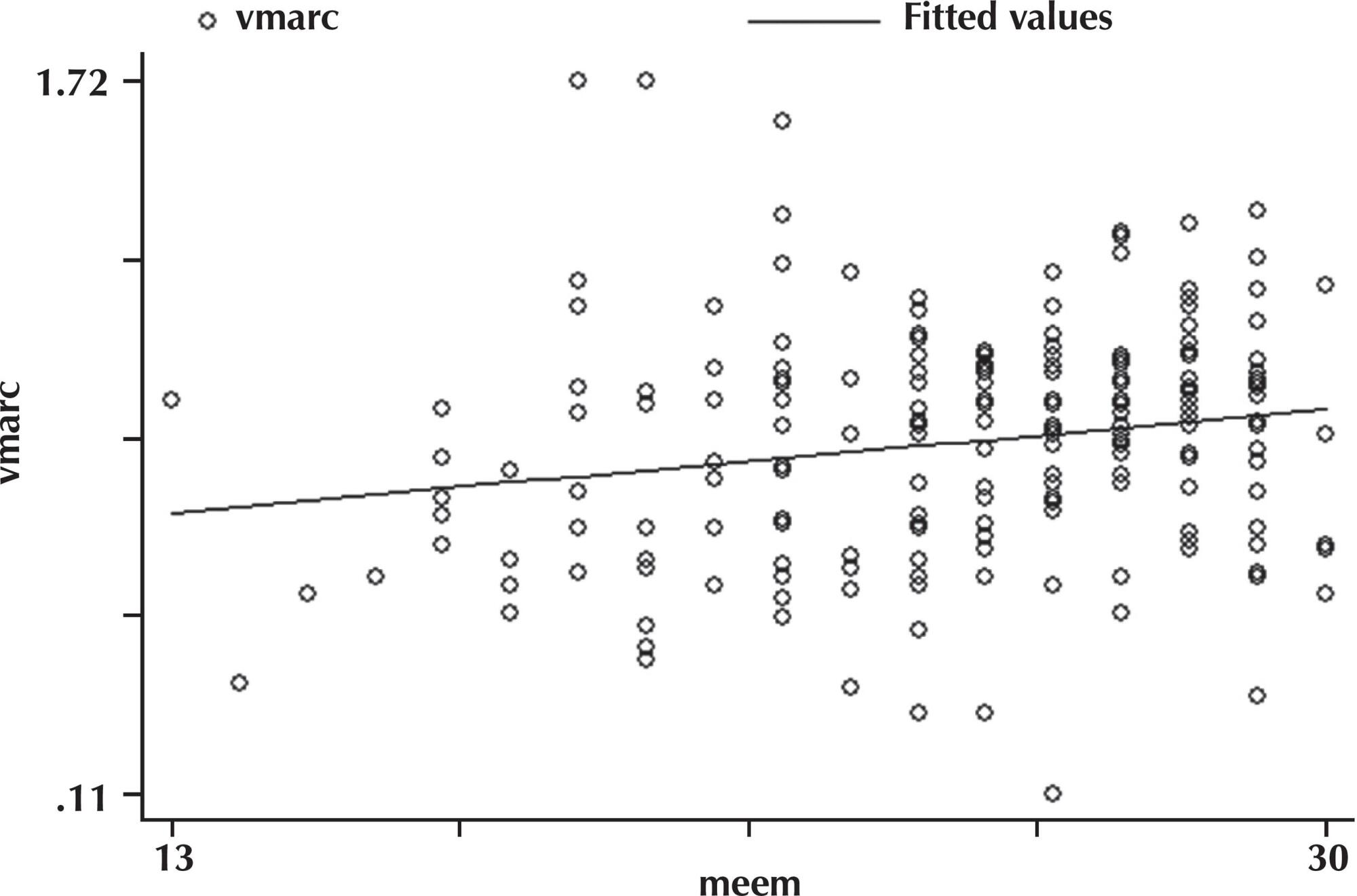
-
01-01-2015
Fluid and dietary restriction’s efficacy on chronic kidney disease patients in hemodialysis
Revista Brasileira de Enfermagem. 2015;68(6):1154-1162
Abstract
Fluid and dietary restriction’s efficacy on chronic kidney disease patients in hemodialysis
Revista Brasileira de Enfermagem. 2015;68(6):1154-1162
DOI 10.1590/0034-7167.2015680622i
Views0See moreABSTRACT
Objective:
to identify self-care measures to manage fluid and dietary restrictions and assess their effectiveness.
Method:
descriptive-correlational study and cluster analysis with 254 chronic renal failure patients on regular hemodialysis program, handled by hemodiafiltration. We evaluated the effectiveness of self-care by interdialytic weight gain (IWG) and by potassium and phosphorus serum pre-dialysis serum levels.
Results:
several self-care measures were significantly correlated with a lower IWG and a lower level of pre-dialysis phosphorus. Patients most often use measures to reduce salt consumption than measures to restrict potassium and dietary phosphorus. The spouse provides important support dietary management. Subjects who use more often the self-care measure are mostly female, are older, less IWG and have a higher Kt/V.
Conclusion:
these results can contribute to the nursing educational support.
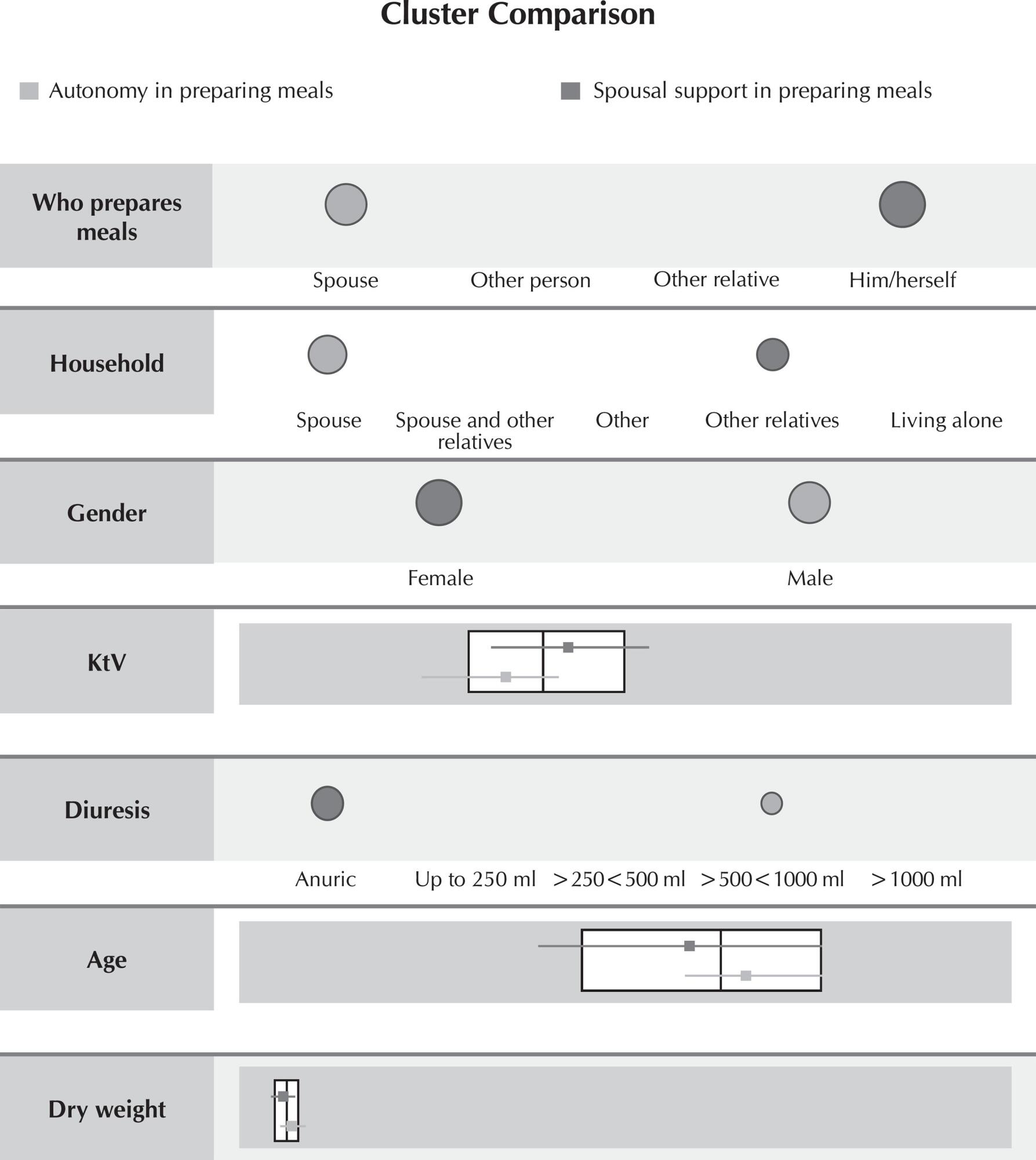
-
01-01-2015
Validation of newborn positioning protocol in Intensive Care Unit
Revista Brasileira de Enfermagem. 2015;68(6):1147-1153
Abstract
Validation of newborn positioning protocol in Intensive Care Unit
Revista Brasileira de Enfermagem. 2015;68(6):1147-1153
DOI 10.1590/0034-7167.2015680621i
Views0See moreRESEARCH
Objective:
to verify the positioning indications of newborn sand build a standard operating procedure protocol for newborn positioning in Neonatal Intensive Care Unit (NICU).
Method:
for protocol validation, the Delphi technique was used ,in which expert nurses in the field reviewed the proposed procedure.
Results:
we present the results of this validation in a protocol form, to contribute to the discussion about newborn positioning in NICU and standardization of nursing care related to positioning. We evaluated ten indicators, in which there was agreementof100.0% in seven, and of80% in three, above the 60% recommended by the validation technique.
Conclusion:
given the importance of newborn positioning in NICU for its neuromuscular development, this study contributes to the adoption of an evidence-based practice for nursing.
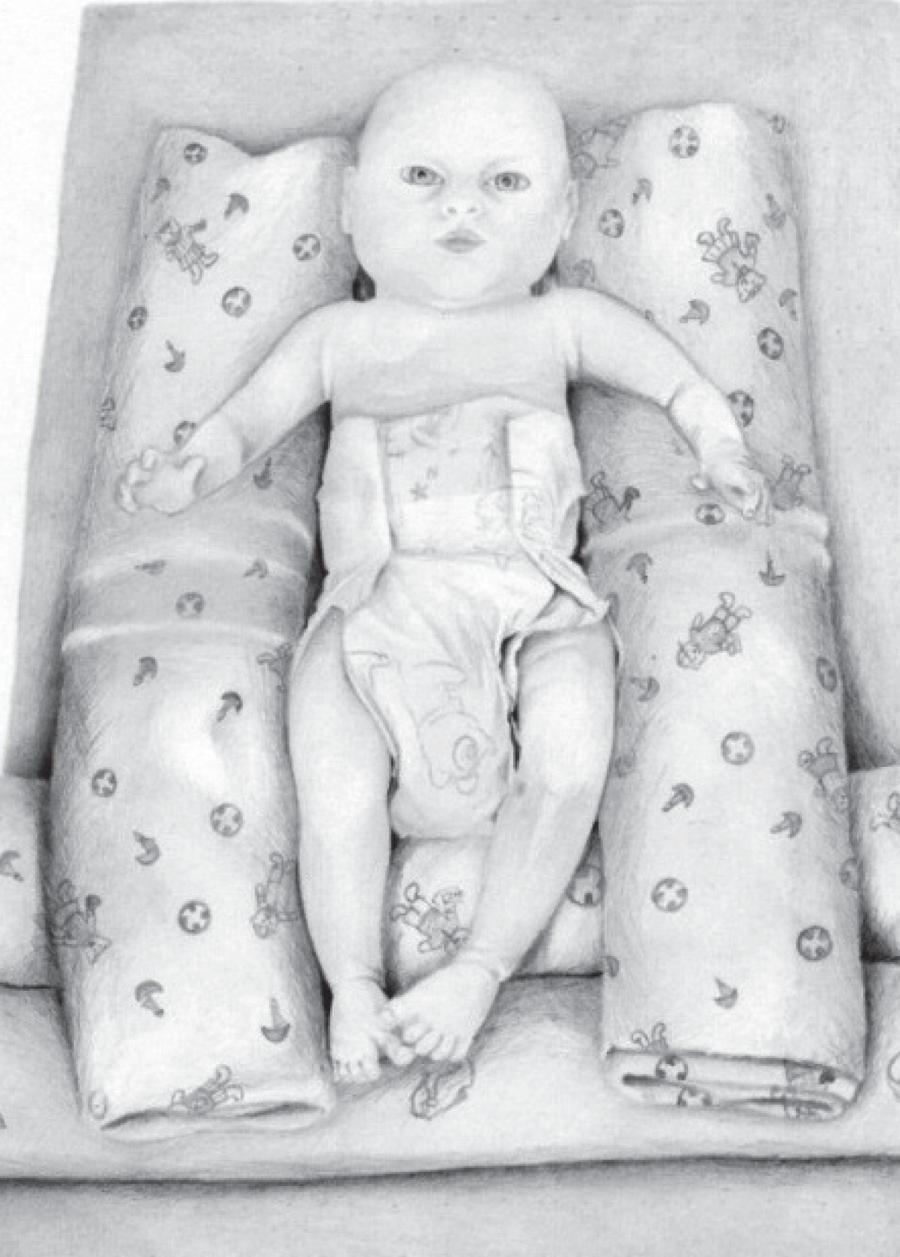
-
01-01-2015
Patient safety culture in a bone marrow transplantation unit
Revista Brasileira de Enfermagem. 2015;68(6):1139-1146
Abstract
Patient safety culture in a bone marrow transplantation unit
Revista Brasileira de Enfermagem. 2015;68(6):1139-1146
DOI 10.1590/0034-7167.2015680620i
Views0See moreABSTRACT
Objective:
evaluate the patient safety culture in the perspective of health professionals from a bone marrow transplantation unit of an oncology research center, at a reference hospital for cancer treatment in Santa Catarina, Brazil.
Method:
a quantitative cross-sectional study that used the Safety Attitudes Questionnaire was conducted between August and September 2013. The study analyzed 33 professional surveys. Statistical data analysis used descriptive and inferential statistics.
Results:
among the dimensions analyzed, only “job satisfaction” reached a mean score above 75, considered positive in terms of patient safety culture.
Conclusion:
the dimensions of safety culture present in the survey have to be valued by professionals and managers to allow safe patient care.
-
01-01-2015
Job satisfaction of nursing staff in a university hospital
Revista Brasileira de Enfermagem. 2015;68(6):1130-1138
Abstract
Job satisfaction of nursing staff in a university hospital
Revista Brasileira de Enfermagem. 2015;68(6):1130-1138
DOI 10.1590/0034-7167.2015680619i
Views0See moreABSTRACT
Objective:
identify the determinants of job satisfaction of the nursing staff of a public university hospital.
Method:
secondary study with mixed data approach and simple and multiple linear regression. A total of 115 subjects participated in the study, 41 nurses and 74 nursing assistants and technicians. The data collection occurred in 2013 using the QST-Caism questionnaire.
Results:
education, hierarchical level and workplace constitute job satisfaction determinants. However, age, gender, job and work period did not show this relationship. More educated workers held low job satisfaction if exercised not graduated nursing functions.
Conclusion:
graduated workers who perform high school functions are more unsatisfied than those who have high school function and qualification.
-
01-01-2015
Medical waste in mobile prehospital care
Revista Brasileira de Enfermagem. 2015;68(6):1122-1129
Abstract
Medical waste in mobile prehospital care
Revista Brasileira de Enfermagem. 2015;68(6):1122-1129
DOI 10.1590/0034-7167.2015680618i
Views0See moreABSTRACT
Objective:
the objective of this study is to identify how Medical Waste (MW) is managed in Mobile Prehospital Care (MPC) services in the state of São Paulo as well as characterize and quantify this waste.
Method:
exploratory and descriptive field study with data collection based on the methodology proposed by the Pan American Health Organization (PAHO), which was conducted over eight consecutive days to identify the production and characteristics of generated waste.
Results:
it was found that the MW management of the MPC is not yet in line with the requirements of RDC 306/04, which could affect the occupational safety of workers, patients, the community, and the environment.
Conclusion:
it is recommended for the health managers to focus on this issue. The lack of studies with regard to MPC also indicates the need for further studies on the waste management.

-
01-01-2015
Severe lactational mastitis: particularities from admission
Revista Brasileira de Enfermagem. 2015;68(6):1116-1121
Abstract
Severe lactational mastitis: particularities from admission
Revista Brasileira de Enfermagem. 2015;68(6):1116-1121
DOI 10.1590/0034-7167.2015680617i
Views0See moreABSTRACT
Objective:
to identify characteristics of women who have suffered severe lactational mastitis.
Method:
a descriptive, retrospective, documentary, quantitative study was performed. Data were collected from patient records of 114 hospitalized women from January of 2009 to December of 2013. Data were analyzed by using descriptive statistics.
Results:
a higher percentage of severe lactational mastitis was found in young, primiparous women who had completed high school, who had no partner, and did not have a job; 96.5% of women had breast complications before admission and remained hospitalized an average of 4.4 days; at discharge, 23.7% of women had weaned their infants.
Conclusion:
this study showed that severe lactational mastitis can cause great harm to the woman and the baby.
-
RESEARCH01-01-2017
Urinary tract infection: a cohort of older people with urinary incontinence
Revista Brasileira de Enfermagem. 2017;70(4):838-844
Abstract
RESEARCHUrinary tract infection: a cohort of older people with urinary incontinence
Revista Brasileira de Enfermagem. 2017;70(4):838-844
DOI 10.1590/0034-7167-2017-0141
Views0See moreABSTRACT
Objective:
To evaluate epidemiological aspects of urinary tract infection in older patients with urinary incontinence living in long-term care institutions in Belo Horizonte. Method: Concurrent cohort held from April 1st to October 1st, 2015. The study was conducted in two long-term care institutions in the city of Belo Horizonte, Minas Gerais, with 84 incontinent older people.
Results:
Cumulative incidence of urinary tract infection was 19% (95% CI: 7.83-23.19) and the incidence density was 3.6 cases/100 people-month of follow-up period. The variables Bacteriuria and Institution presented statistical association with the occurrence of urinary tract infection.
Conclusion:
It is observed that the incidence of urinary tract infection in the study was smaller than in other similar international and national studies, however this is an important world health problem for the older population, with impact on mortality of these individuals.
-
RESEARCH01-01-2017
Geriatric care: ways and means of providing comfort
Revista Brasileira de Enfermagem. 2017;70(4):830-837
Abstract
RESEARCHGeriatric care: ways and means of providing comfort
Revista Brasileira de Enfermagem. 2017;70(4):830-837
DOI 10.1590/0034-7167-2016-0636
Views0See moreABSTRACT
Objective:
To know the ways and means of comfort perceived by the older adults hospitalized in a medical service.
Method:
Ethnographic study with a qualitative approach. We conducted semi-structured interviews with 22 older adults and participant observation of care situations.
Results:
The ways and means of providing comfort are centered on strategies for promoting care mobilized by nurses and recognized by patients(clarifying/informing, positive interaction/communication, music therapy, touch, smile, unconditional presence, empathy/proximity relationship, integrating the older adult or the family as partner in the care, relief of discomfort through massage/mobilization/therapy) and on particular moments of comfort (the first contact, the moment of personal hygiene, and the visit of the family), which constitute the foundation of care/comfort.
Final considerations:
Geriatric care is built on the relationship that is established and complete with meaning, and is based on the meeting/interaction between the actors under the influence of the context in which they are inserted. The different ways and means of providing comfort aim to facilitate/increase care, relieve discomfort and/or invest in potential comfort.
-
RESEARCH01-01-2017
Elderly who take care of elderly: a study on the Frailty Syndrome
Revista Brasileira de Enfermagem. 2017;70(4):822-829
Abstract
RESEARCHElderly who take care of elderly: a study on the Frailty Syndrome
Revista Brasileira de Enfermagem. 2017;70(4):822-829
DOI 10.1590/0034-7167-2016-0474
Views0See moreABSTRACT
Objective:
Identifying prevalence of frailty in elderly caregivers inserted in a high social vulnerability context and its correlation with sociodemographic and health aspects.
Method:
Descriptive, correlational and cross-sectional study. Forty elderly caregivers were evaluated with: questionnaire for caregiver characterization, Mini Mental State Examination, Katz Index, Lawton instrumental activities of daily living scale, Geriatric Depression Scale and the frailty phenotype proposed by Fried. Interviews were conducted at their residences and scheduled in advance. All ethical precautions were observed. Data were analyzed with the Stata statistical program version 11.0.
Results:
10% of elderly caregivers were frail. There was a significant correlation between frailty and sex, instrumental activities of daily living and cognition.
Conclusion:
Female caregivers, partially dependent individuals regarding instrumental activities of daily living and with worse cognitive state deserve a special attention from health services.
-
01-01-2017
Efeitos de um programa de Educação em Saúde na cognição, humor e capacidade funcional
Revista Brasileira de Enfermagem. 2017;70(4):814-821
Abstract
Efeitos de um programa de Educação em Saúde na cognição, humor e capacidade funcional
Revista Brasileira de Enfermagem. 2017;70(4):814-821
DOI 10.1590/0034-7167-2016-0638
Views0See moreRESUMEN
Objetivo:
Evaluar los efectos de la Educación para la Salud (ES) en la cognición, humor y capacidad funcional de participantes de una Universidad Abierta de la Tercera Edad.
Método:
Se trata de un ensayo clínico controlado. El Programa de Educación para la Salud consistió en 10 sesiones con dinámicas de grupo, con orientaciones sobre prevención de enfermedades y ejercicios de estimulación cognitiva, con duración de 4 meses. Participaron 13 personas en el grupo de intervención (GI) y 15 en el grupo control (GC). Todos fueron evaluados al inicio y al término del estudio con los instrumentos Addenbrook´s Cognitive Examination-Revised (ACE-R), Inventario de Depresión y Ansiedad de Beck (BDI/BAI) y con la Medida de la Independencia Funcional (FIM).
Resultados:
se observaron mejoras significativas en el GI cuando se compararon los resultados del ACE-R (p=0,001) y el dominio de la memoria (p=0,001) antes y después de la intervención. Para el GC fue encontrada una mejora significativa solamente en el dominio de la memoria (p=0.027).
Conclusión:
Los resultados sugieren que la intervención educativa estudiada tiene efecto beneficioso en el desempeño cognitivo de los participantes de la Universidad Abierta de la Tercera Edad.
-
01-01-2017
Effects of a Health Education program on cognition, mood and functional capacity
Revista Brasileira de Enfermagem. 2017;70(4):814-821
Abstract
Effects of a Health Education program on cognition, mood and functional capacity
Revista Brasileira de Enfermagem. 2017;70(4):814-821
DOI 10.1590/0034-7167-2016-0638
Views0See moreABSTRACT
Objective:
Assess the effect of a Health Education (HE) program on cognition, mood and functional capacity of participants in a University of The Third Age (U3A).
Method:
Controlled clinical trial. The HE Program consisted of 10 sessions with group dynamics, including orientations on disease prevention and cognitive stimulation exercises, lasting four months. Intervention Group (IG) n=13; and Control Group (CG) n=15. All were assessed at the start and end of the study, using Addenbrook´s Cognitive Examination-Revised (ACE-R), Beck Depression and Anxiety Inventory (BDI/BAI) and Functional Independence Measure (FIM).
Results:
Significant improvements were observed for the IG when comparing the total ACE-R score (p=0.001) and memory domain (p=0.011) before and after the intervention. For the CG, improvement was found in the memory domain only (p=0.027).
Conclusion:
a HE intervention program benefits the improvement in cognitive performance, particularly the memory of adults and active elderly who participated in a U3A.
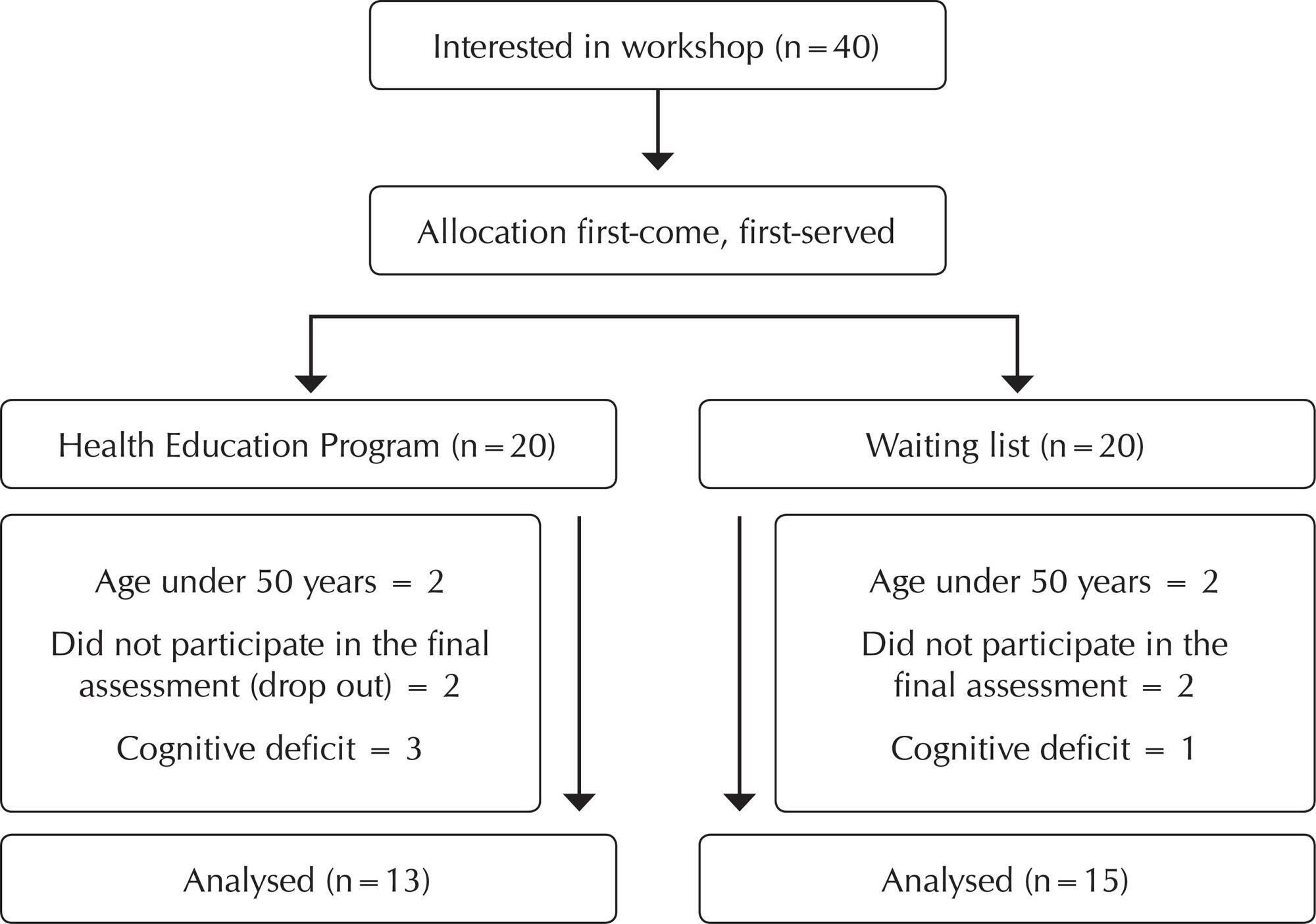
-
RESEARCH01-01-2017
Social representations of older adults regarding quality of life
Revista Brasileira de Enfermagem. 2017;70(4):806-813
Abstract
RESEARCHSocial representations of older adults regarding quality of life
Revista Brasileira de Enfermagem. 2017;70(4):806-813
DOI 10.1590/0034-7167-2017-0097
Views0See moreABSTRACT
Objective:
to identify the social representations of older adults regarding quality of life, and to analyze the care practices adopted to promote it.
Method:
qualitative, exploratory, descriptive research, applying the Theory of Social Representations. Thirty older people from a Health Academy of Rio de Janeiro participated in the study. The software Alceste was used, and lexical analysis of data was performed.
Results:
social representations of quality of life are based on the social determinants of health; they evidence knowledge and practices of care by valuing physical activities. The practices promoting quality of life comprise healthy eating habits, daily physical exercise, social participation, interaction and socialization, accomplishment of leisure activities and daily tasks with independence and autonomy, and support and family contact.
Final considerations:
the elderly have a global understanding of the concept of quality of life, coordinate knowledge built in daily life and knowledge coming from the technical-professional field, which evidences the multidimensionality of the concept.
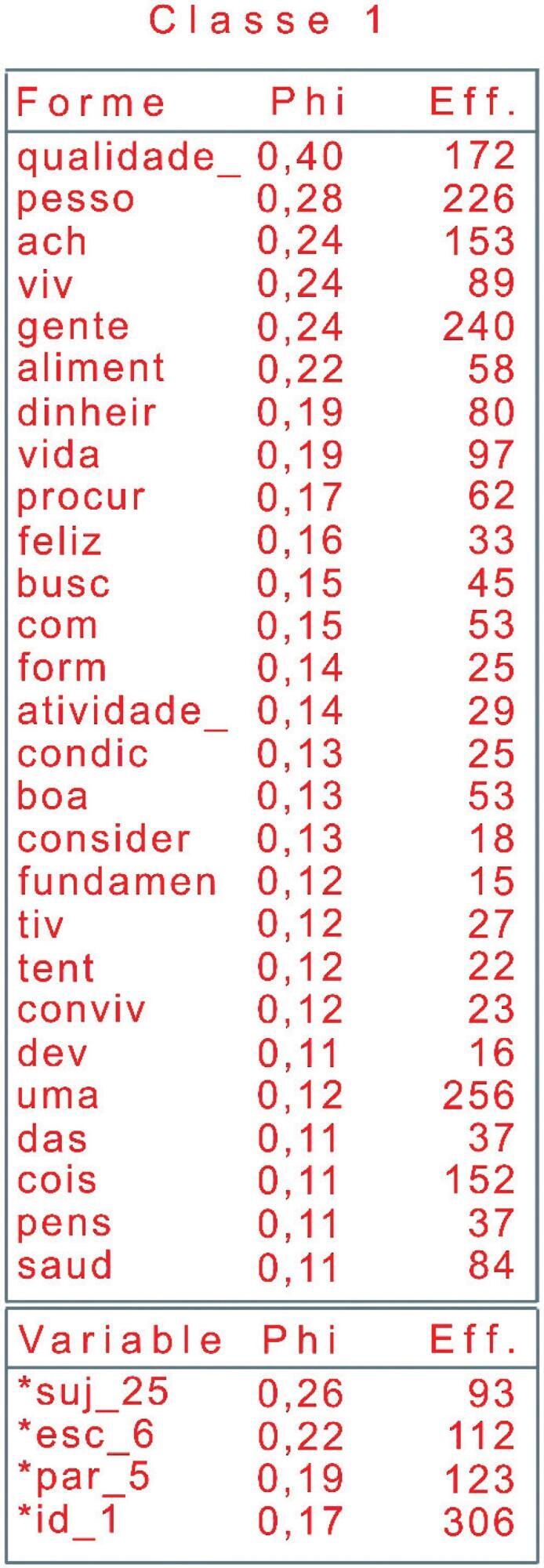
-
RESEARCH01-01-2017
Nursing diagnosis in older adults with chronic kidney disease on hemodialysis
Revista Brasileira de Enfermagem. 2017;70(4):800-805
Abstract
RESEARCHNursing diagnosis in older adults with chronic kidney disease on hemodialysis
Revista Brasileira de Enfermagem. 2017;70(4):800-805
DOI 10.1590/0034-7167-2017-0117
Views0See moreABSTRACT
Objective:
To identify the main nursing diagnoses (NSs) in older adult patients under hemodialysis treatment.
Method:
Exploratory research using case studies in data collection performed by interview and physical examination of older adults, in the first semester of 2016. Were included twenty-eight older adults undergoing chronic hemodialysis treatment who met the selection criteria. The analysis followed two steps (RISNER, 1990): Phase I – Data analysis and synthesis; and Phase II – Establishment of nursing diagnoses using the taxonomy of NANDA-I (2015).
Results:
The total of NSs was 110, averaging 3.9 per patient. It was listed seven different NSs, and both the Risk of infection and the Volume of excessive liquids appeared on all patients (28; 100%), and risk of electrolyte imbalance, in 26 (96.8%) older adults, being considered as main NSs.
Conclusion:
Such results can help systematize the care of older people who are undergoing hemodialysis treatment.
-
RESEARCH01-01-2017
Health education with older adults: action research with primary care professionals
Revista Brasileira de Enfermagem. 2017;70(4):792-799
Abstract
RESEARCHHealth education with older adults: action research with primary care professionals
Revista Brasileira de Enfermagem. 2017;70(4):792-799
DOI 10.1590/0034-7167-2016-0349
Views0See moreABSTRACT
Objective:
To assess the development and implementation of permanent education action.
Method:
Quantitative-qualitative research based on action research in three phases (diagnosis of reality, implementation of activity and evaluation), performed with health professionals and managers of basic health units. The evaluation was on the perception of changes immediately following the activity and after 120 days.
Results:
In the first phase, 110 professionals took part, 36.4% of whom indicated the existence of groups for older adults at work. In the second phase, 98 professionals participated, pointing out interferences of the group in the life of older adults, items of importance and facilitation in forming groups and developing reality-based activities. The third phase showed, in the quantitative analysis, positive impact of the training, and in the qualitative analysis, reassessment of groups, greater knowledge and confidence in managing groups and increased respect for older adults.
Final considerations:
Permanent education opens pathways for the construction of differentiated care for older adults based on respect and health promotion.

Search
Search in:
Nuvem de Tags
Adolescente (85) Atenção Primária à Saúde (239) COVID-19 (91) Criança (91) Cuidados de Enfermagem (269) Educação em Enfermagem (151) Educação em Saúde (139) Enfermagem (930) Enfermagem Pediátrica (86) Estudantes de Enfermagem (77) Estudos de Validação (131) Família (87) Idoso (208) Promoção da Saúde (99) Qualidade de Vida (104) Saúde do Trabalhador (86) Saúde Mental (145) Saúde Pública (82) Segurança do Paciente (150) Tecnologia Educacional (100)



